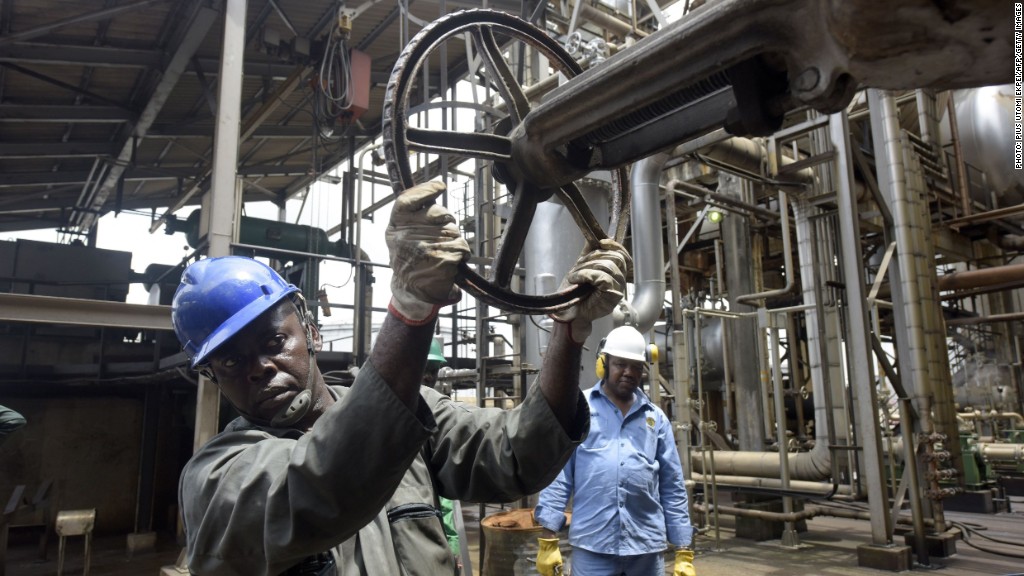
Another day, another oil producer in trouble.
Nigeria is considering asking the World Bank, the African Development Bank and other international organizations for help to plug a hole in this year's budget created by the collapse in crude oil prices. The government said it is looking to borrow as much as $9 billion to fund its cash-starved economy.
The 75% plunge in crude prices to around $33 per barrel means Nigeria is now losing money on some of the oil it pumps.
Nigeria is the second major oil producing country, after Azerbaijan, to admit it might need emergency financing because of low crude prices.
Nigeria, Africa's largest economy, is also the continent's biggest oil producer. The sector accounts for about 35% of GDP, 75% of government revenue and 90% of export earnings.
Its currency is plummeting, with foreign exchange dealers offering much higher rates than the official 199 nair per dollar. The government has been burning through its foreign currency reserves, which fell to $28 billion at the end of January from $43 billion two years ago.
And its budget deficit is growing fast. The government wants to invest in big infrastructure projects and make the country less dependent on oil.
The deficit is now expected to reach 3 trillion naira ($15 billion) in 2016, up from a previous estimate of 2.2 trillion.
Nigeria is also suffering from frequent power cuts and fuel shortages because it doesn't have enough capacity to refine it own crude.
Related: 5 countries crushed by oil price collapse
The finance ministry denied reports that it has already asked for emergency cash, but said it is considering a World Bank loan as one way of funding the deficit.
"The truth is that Nigeria... has indicated an intention to borrow 1.8 trillion naira principally for investment in capital projects to stimulate the economy," Finance Minister Kemi Adeosun said in a statement.
Nigeria is exploring the option of borrowing from multilateral organizations such as the World Bank and AFDB, as well as the Export-Import Bank of China, because they offer lower rates of interest than other lenders, she said.
Officials from the African Development Bank visited Nigeria last week.
Nigeria is a member of OPEC, and has been pushing for the Saudi-led oil cartel to cut production to support prices.
OPEC decided in 2014 to wage a price war with low cost producers in the U.S. and elsewhere in a bid to defend market share. Many OPEC countries are still making money at these prices but others are losing.
Nigeria's average production costs are estimated at about $31 a barrel.
-- CNN's Eleni Giokos contributed to this article.


